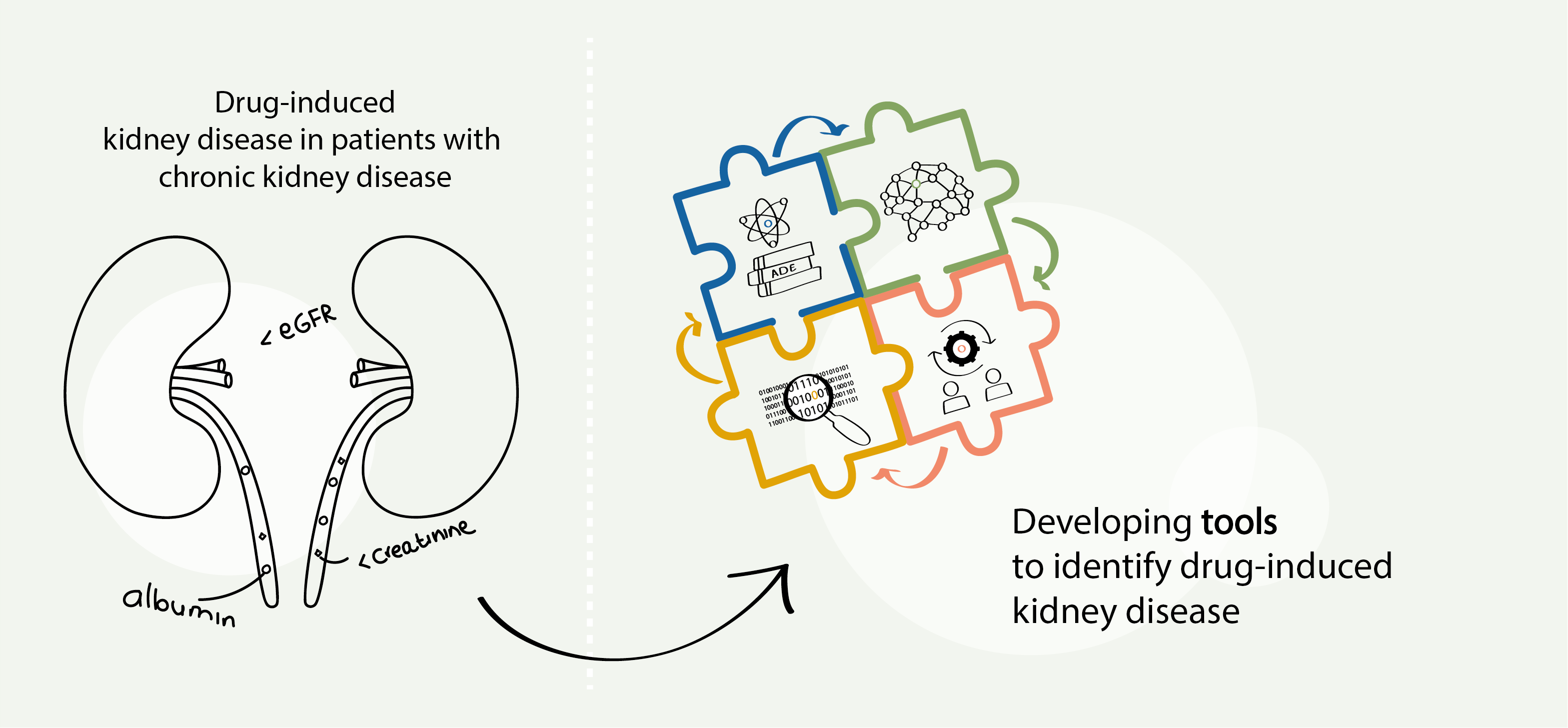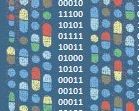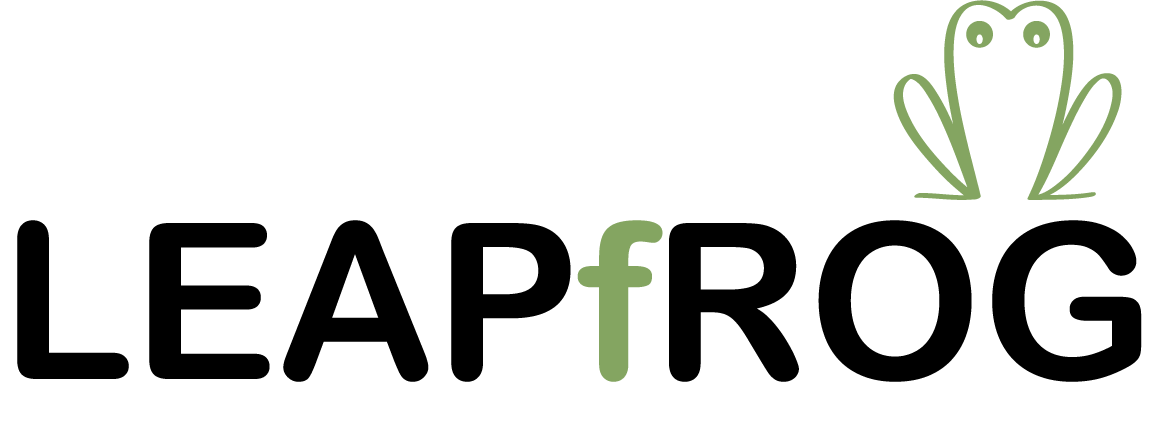Chronic kidney disease
During the LEAPfROG project, we will first work on detecting drug-induced kidney disease in patients with chronic kidney disease. This is our Case Study: a case to demonstrate the value of the LEAPfROG approach.
Approximately 12% of all people in the Netherlands suffer from chronisch kidney disease. In this condition, the kidney function is decreased for at least 3 months. In addition to chronic kidney disease, patients often have other chronic health-related problems such as high blood pressure, rheumatism, or diabetes. Medication used for these multiple health-related problems can increase or accelerate the kidney injury.

Treatment is complex
Treatment of chronic kidney disease is increasingly complicated due the multiple health-related problems (multimorbidity). The number of people with chronic kidney disease is rising and the number of people who can offer care is decreasing. Additionally, patients with chronic kidney disease are often excluded from scientific studies on effects and adverse drug events of medicines. They are excluded from these trials due to their frail kidneys and/or multimorbidity.
Kidney disease and LEAPfROG
In the LEAPfROG project, we will develop algorithms to detect and prevent drug-induced kidney disease in patients with chronic kidney disease. We will use machine learning techniques which are able to combine data of Electronic Health Records with existing knowledge sources on medicines, such as books, and scientific papers. In this way, we will create a learning medication safety system.
About LEAPfROG

LEAPfROG is a scientific research project and is leveraging real-world data to optimise pharmacotherapy outcomes in multimorbid patients by using machine learning and big data. LEAPfROG is a private-public cooperation between Amsterdam UMC, Vrije Universiteit, Open Universiteit and eight private partners. LEAPfROG is financed by NWO for 70%. The private parties are co-funding the project for 30%.
Contact
More LEAPfROG

